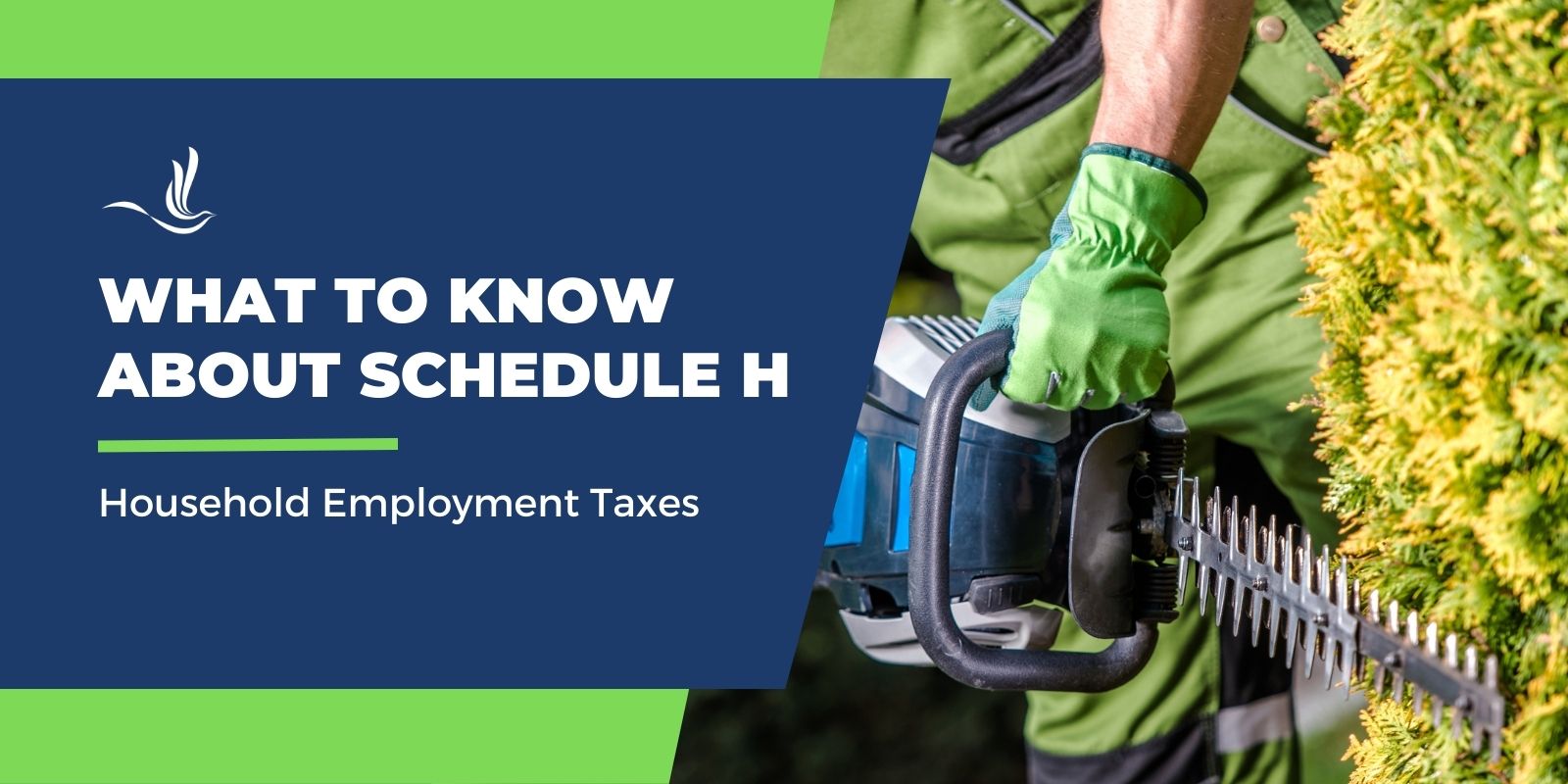
If you have anyone doing work around your home, it’s possible they may be considered household employees. Consequently, you’ll have some additional responsibilities at tax time, including filing a Schedule H. Schedule H reports household employment taxes to the IRS. Here’s an overview of Schedule H.
What is Schedule H?
Schedule H, Household Employment Taxes, is a form that household employers use to report household employment taxes to the IRS. So, it’s important to understand which employees qualify as a household employee and not independent contractors. If a person comes to your home to perform work one time or occasionally, they are likely independent contractors. These are typically plumbers, occasional babysitters, roofers, and others who run their own businesses. On the other hand, if your employee is someone who you give regular tasks to, they are likely considered a household employee. Housekeepers, live-in nannies, drivers, caretakers and regular babysitters are examples. Keep in mind, however, that you should not count wages paid to your spouse, parent, children under the age of 21, or any employee under the age of 18.
How to File Schedule H
Schedule H should be filed with Form 1040, 1040-SR, 1040-NR, 1040-SS, or 1041. However, if you are not filing any of these returns, you can file Schedule H alone. To file Schedule H, you’ll need the following information:
- Your full name, SSN, and EIN
- Total wages paid to household employee(s)
- Social security and Medicare taxes withheld
- FUTA tax
- Income tax deducted from wages (if any)
- Your signature
- The date
You must file Form W-2 for each household employee that you paid $2,600 or more in wages in 2023. The amount increases to $2,700 in 2024. In addition, you’ll need to send Form W-2 with Copy A of Form W-2 to the Social Security Administration (SSA).
Don’t forget to pay federal unemployment tax if you paid $1,000 or more in wages in any calendar quarter in 2022. Each household employee is required to pay 6.2% for social security and 1.45% for Medicare. You, as an employer, hold the responsibility of matching these figures as well as FUTA taxes. This figure varies from 0.6% to 6%. However, the amount can be reduced if you pay state unemployment insurance (SUI or SUTA tax).
Tax Help for Those with Household Employees
There are quite a few responsibilities that come with having household employees. Most important, these can include filing requirements and tax payments that need to be made. It’s important you understand these responsibilities for both your sake and your employee’s. Optima Tax Relief is the nation’s leading tax resolution firm with over a decade of experience helping taxpayers.
If You Need Tax Help, Contact Us Today for a Free Consultation